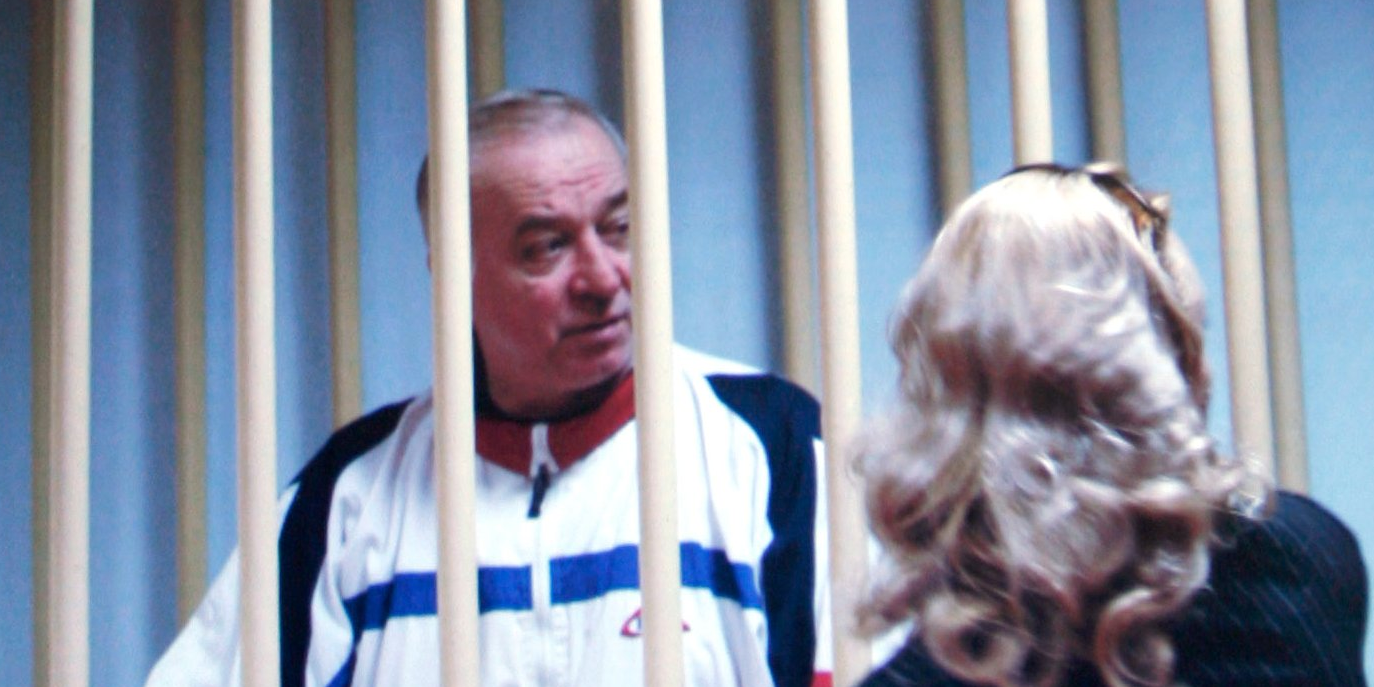Britain has accused Russia of trying to kill former spy Sergei Skripal and his daughter with a deadly nerve agent – but the Kremlin is fighting back.
The UK blamed Russia partly on the grounds that Novichok, the poison used in the attack, was developed in the former Soviet Union. Allies including the US, France, and Germany have agreed that this is the only plausible explanation.
Regardless, the Kremlin has denied all involvement. Instead Russian officials and state media outlets have promoted numerous alternative theories which they claim could lead to the real culprits.
British Foreign Secretary Boris Johnson has described the proliferation of theories as “a classic Russia strategy of trying to conceal the needle of truth in a haystack of lies and obfuscation.”
Scroll down to read the theories in question.
1. Britain supplied the poison itself from a chemical weapons lab.
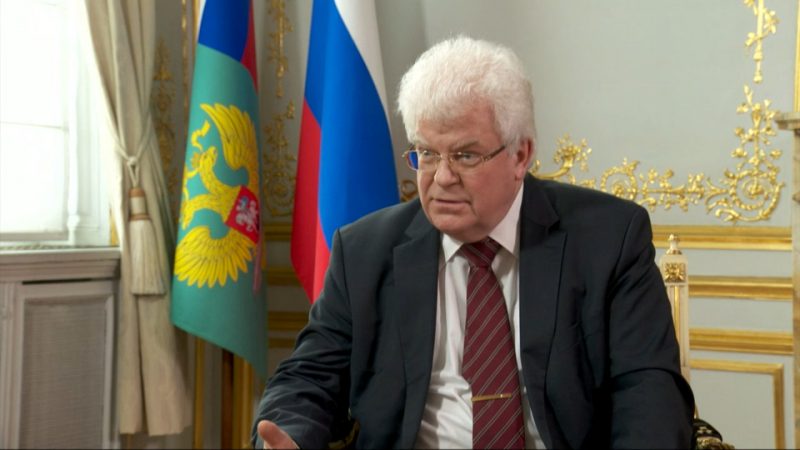
On Sunday, Vladimir Chizhov, Russia's ambassador to the European Union, suggested that the Novichok could have originated from a UK military lab at Porton Down.
The facility is where scientists analysed traces from the murder this week, leading Britain to point the finger at Russia.
In an interview with the BBC's Andrew Marr Show, Chizhov said: "Porton Down, as we now all know, is the largest military facility in the United Kingdom that has been dealing with chemical weapons research.
"And it's actually only eight miles from Salisbury."
He later added: "I don't have any evidence."
The Russian Foreign Ministry on Wednesday also used satellite imagery to claim that new labs were built at Porton Down, and suggested a link to the Skripal attack.
The Russian Foreign Ministry briefing are now showing satellite pictures suggesting new laboratories have been built at Porton Down pic.twitter.com/KHPJRMvQhq
— Daniel Sandford (@BBCDanielS) March 21, 2018
2. Britain did it because Brexit is going badly.
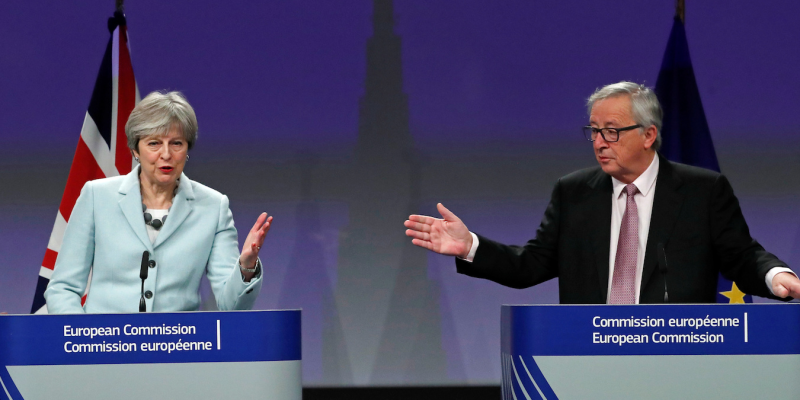
The Russian Foreign Minister said the UK could have orchestrated the attack to distract the public from domestic politics and Brexit negotiations.
Sergei Lavrov told reporters the poisoning could "be advantageous to the British government, who clearly find themselves in a difficult situation, having failed to fulfil their promises to voters over Brexit."
This theory was also put forward by Sergei Markov, a pro-Kremlin former politician and director of Moscow's Institute of Political Studies.
He told Al Jazeera: "Theresa May has a lot of problems because of the failure in the parliamentary elections, Brexit, and the complicated situation with the border between Ireland and the Northern Ireland.
"So the British intelligence service probably organised the killing of Mr Skripal, sacrificing the guy who they don't need any more."
3. Britain did it because they were worried Skripal would turn on them.
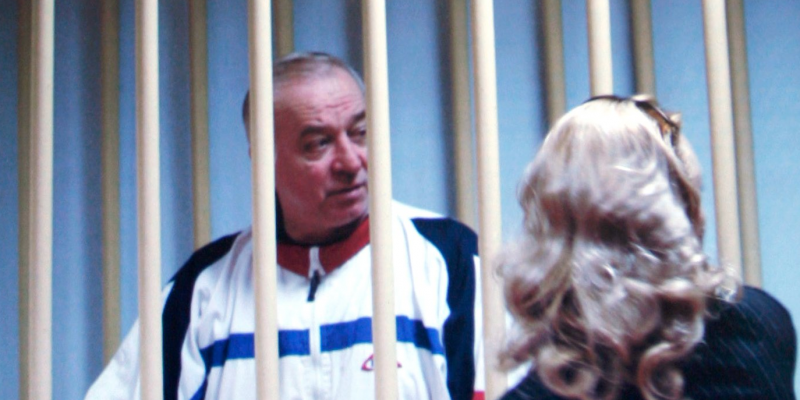
This was the view put forward by ultranationalist Russian politician Vladimir Zhirinovsky, who is also running in the upcoming presidential election on March 18.
According to The Guardian, Zhirinovsky suggested that UK intelligence agencies could have poisoned Skripal because "he was of no more use to them" and feared that the ex-Russian spy would sell on their state secrets.
4. Britain did it to make Russia look bad.
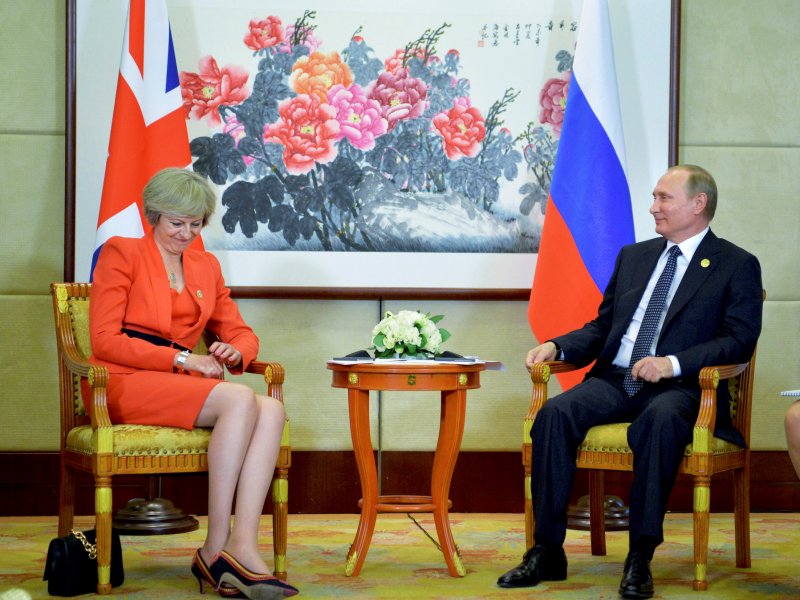
Sergei Naryshkin, the director of Russia's Foreign Intelligence Service (SVR) claimed that the poisoning was a "grotesque provocation rudely staged by the British and US intelligence agencies."
He added that the countries that joined Theresa May and Donald Trump in accusing Russia of being behind the attack were "following London and Washington blindly."
Andrei Lugovoi, a Russian politician and former spy, also said two days after the Skripals' collapse: "I don't rule out that this is another provocation by British intelligence agencies.
"Whatever happens on [British] territory, they start yelling: 'He was killed, he was hung, he was poisoned!' and that Russia is to blame for everything. This is to their advantage."
Lugovoi was also held responsible by British authorities in the assassination of ex-KGB spy Alexander Litvinenko in 2006. The UK later tried to extradite him, but Russia refused.
5. Britain must have been involved, because only they knew where Skripal was.
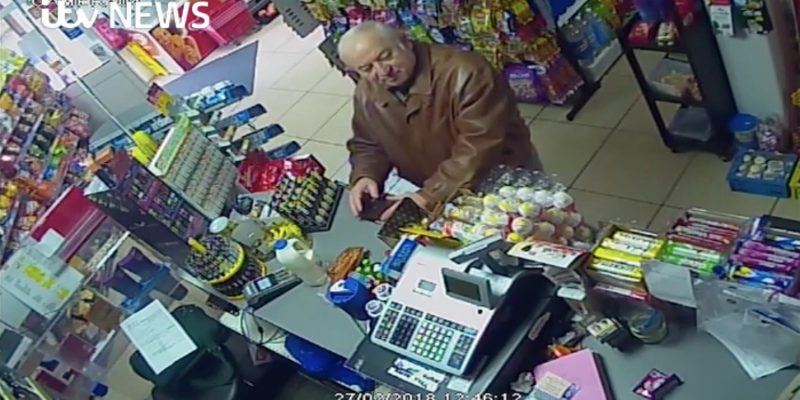
Nikolay Kovalev, a former director of the Russian secret service (FSB), said Britain and its allies could have behind the attack because the UK would have known Skripal's whereabouts, and therefore been able to attack him in Salisbury.
RT cited him as saying: "It looks like British secret services are complicit in it.
"[Defectors] are fully under surveillance... The secret services are monitoring them, they know their whereabouts and schedules.
"And then you have such strange events happen in a row."
London's Metropolitan Police, whose counterterror police is leading the investigation, recently appealed for information on the Skripals' whereabouts 45 minutes before he arrived at the shopping centre at which he later collapsed.
6. The West timed the attack to coincide with Russia's elections.
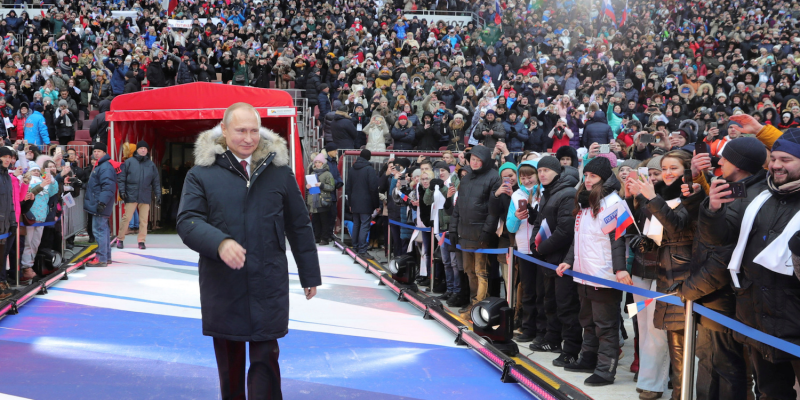
Sputnik ran an op-ed alleging this four days after the Skripals were found poisoned.
The columnist, Finian Cunningham, wrote:
"It seems highly significant that Russia's presidential elections are due to take place later this month [March 18]. What better way to smear the expected electoral victory of incumbent president Vladimir Putin than to accuse the Kremlin of carrying out an assassination plot on British soil against a former Russian spy?
"Given their inveterate anti-Russian agenda, the British authorities have much more vested interest in seeing Skripal poisoned than the Kremlin ever would."
MailOnline also cited Argumenty i Fakty, a Russian tabloid owned by the Government of Moscow, as saying: "Whatever happened in reality, we need to admit that Skripal is a very convenient figure for promotion of another round of anti-Russian hysteria."
7. Western countries did it because they wanted to "destroy Russia's reputation as a peacemaker" in Syria.
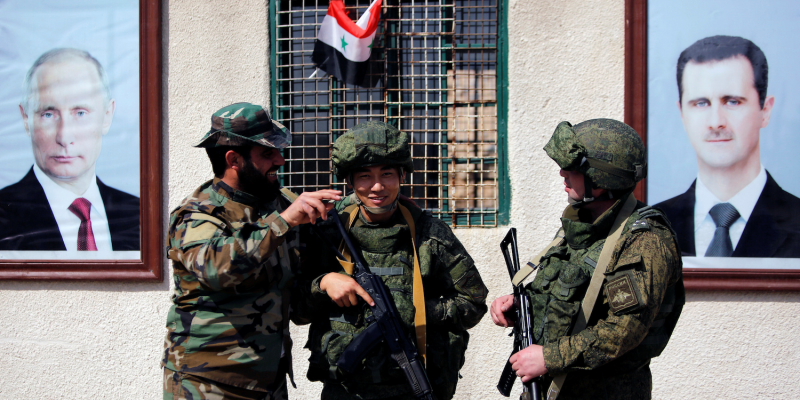
Maria Zakharova, the Russian Foreign Ministry spokeswoman, told state-owned Russia-1 TV there was a "direct connection" between the Skripal poisoning and Russia's "undeniable progress in Syria," Russia media analyst Julia Davis tweeted.
Zakharova added that "the West [was] using it to destroy Russia's reputation as a peacemaker."
8. Ukraine did it using leftover Soviet chemical weapons.
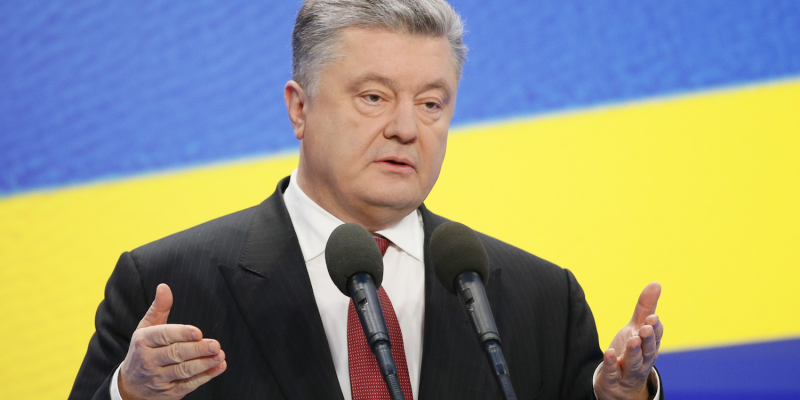
Nikolay Kovalev, the former director of Russia's secret service (FSB), pointed the finger at Ukraine because the former Soviet Union republic could have stockpiled the nerve agent used to attack Skripal.
Novichok, the deadly nerve agent identified in the poisoning, was developed by the Soviet Union during the Cold War.
The state-backed RT TV network cited Kovalev as saying: "Given that [such substances] were stockpiled in former Soviet Union republics - sorry, but Ukrainian involvement can't be ruled out."
9. Sweden, Slovakia, or the Czech Republic were involved.
https://twitter.com/margotwallstrom/status/975044507409567745?ref_src=twsrc%5Etfw
Russian officials have also suggested other European countries could have been the source of the poison.
Russian foreign ministry spokeswoman Maria Zakharova said the likeliest source of the posion is "countries which have been carrying out intense research on the substances from the 'Novichok' program."
She listed Sweden, Slovakia, and the Czech Republic as the countries she meant, as well as Britain.
The Swedish , Czech and Slovakian foreign ministries have all bluntly rejected that suggestion.
10. Non-state actors who wanted to "cause an international scandal" did it.
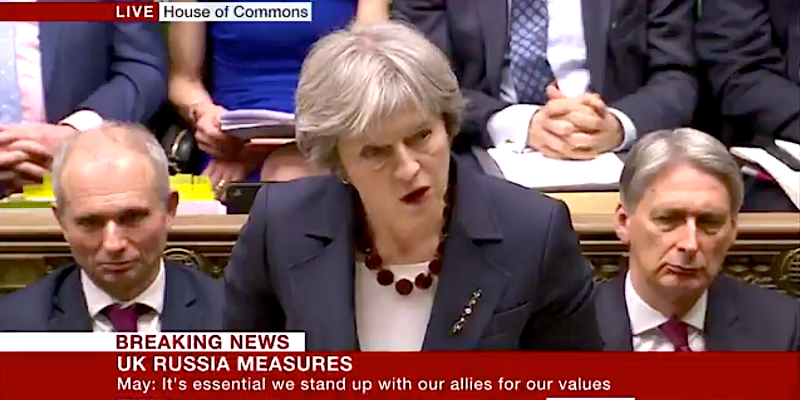
Lieutenant General William Rooda, a retired Soviet intelligence agent, told Sputnik Skripal was "obviously" carried out by non-state actors who wanted to stir up an international scandal.
Paraphrasing Rooda, Sputnik reported that the former Soviet spy said the perpetrators' "aim was not to murder him but to cause an international scandal."
Rooda also claimed that Skripal, who was pardoned and sent to the UK in 2010, didn't pose a threat to Moscow and therefore couldn't have been poisoned by the Russian state.
Besides, Rooda claimed, Russian military intelligence never used poison or other toxic substances to kill its enemies.
11. The prominent UK-based Putin critic Bill Browder was involved.
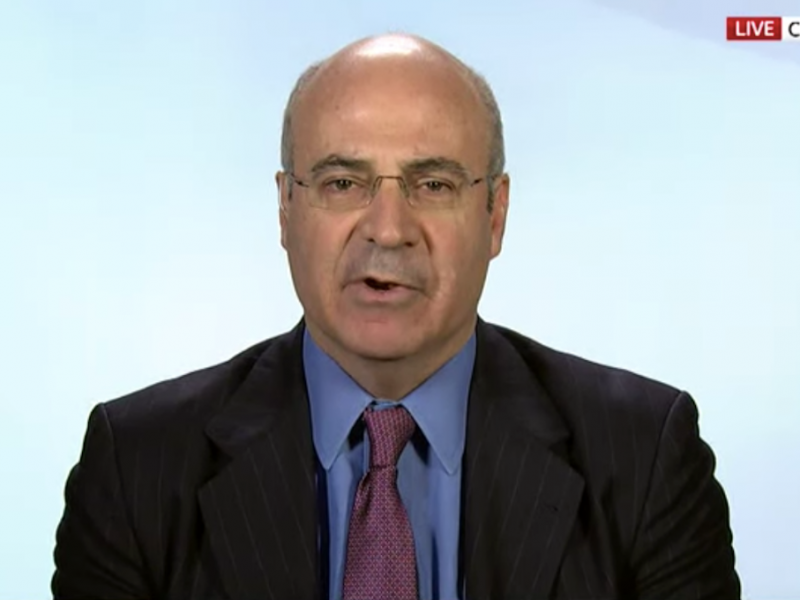
This claim was made by Dmitry Kiselyov, who was appointed by Putin to run the state-owned Rossiya Segodnya news agency. It was pointed out by Julia Davis, the Russian media analyst.
Browder, who was at one point Russia's largest foreign investor, was deported from Russia after exposing corruption in the country.
He suspected that the Kremlin ordered the poisoning before the UK accused Russia of being behind it.
He told Sky News earlier this month: "If that [an assassination plot] is what happened... then I wouldn't expect the Kremlin to do anything but lie."
12. The US could be involved because it previously accessed an Uzbek research site that made Novichok.
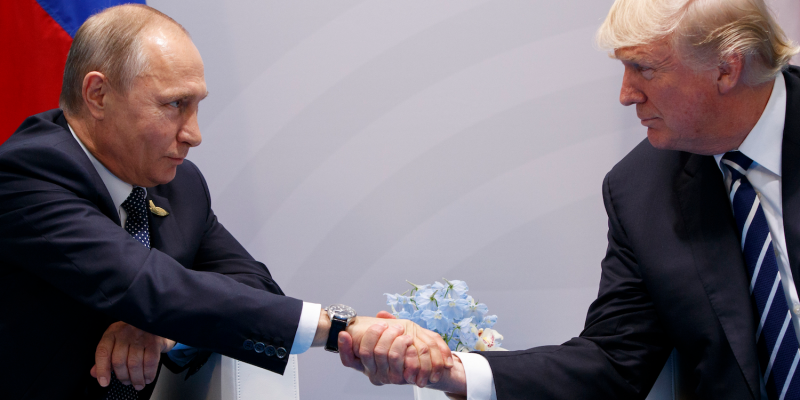
Both RT and Sputnik suggested that the US might have been behind the poisoning because it had could have had access to the chemical plants that produced Novichok.
While neither outlet accused the US outright, both wrote articles heavily implying that the US could possess the knowledge and materials for Novichok.
Both cited a 1999 article from The New York Times, which reported that the US had been given access to a research site that made the nerve agent.
"Is Russia the only place it could come from?" RT asked, while Sputnik re-reported The New York Times' story.
Markov, the Institute of Political Studies director, was less subtle.
"Novichok had been produced in Uzbekistan in the Soviet times and after the fall of the Soviet Union, as we know, the American intelligence services had access to this factory.
"The American and British intelligence services have a very strong cooperation with each other, and I am sure 100% that the British got this Novichok nerve agent from them for this provocation."
13. The UK and US made their own version of Novichok, which could have been used in the poisoning.
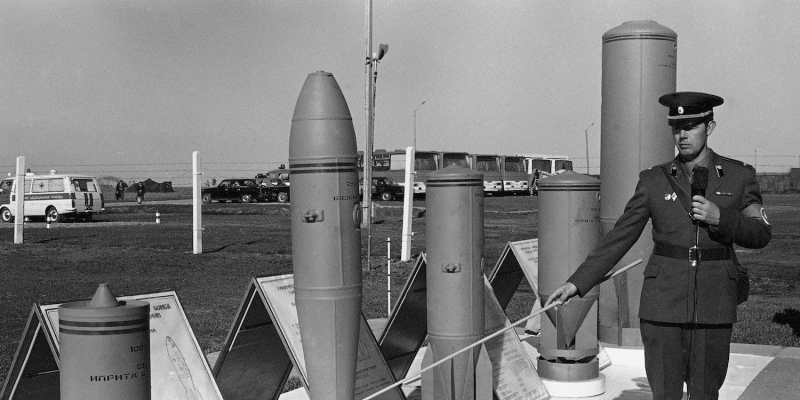
This theory was put forward by Alexander Shulgin, the Russian envoy to the Organization for the Prohibition of Chemical Weapons.
State-backed Sputnik news agency cited him as saying: "It is entirely possible that this substance could have been used from their arsenals, from their stocks.
"My guess is this, Britain cannot provide us with the real evidence and confirmation of those claims that are put forward to us."
14. In fact, anyone could have created Novichok because the chemical formula is published in a book.
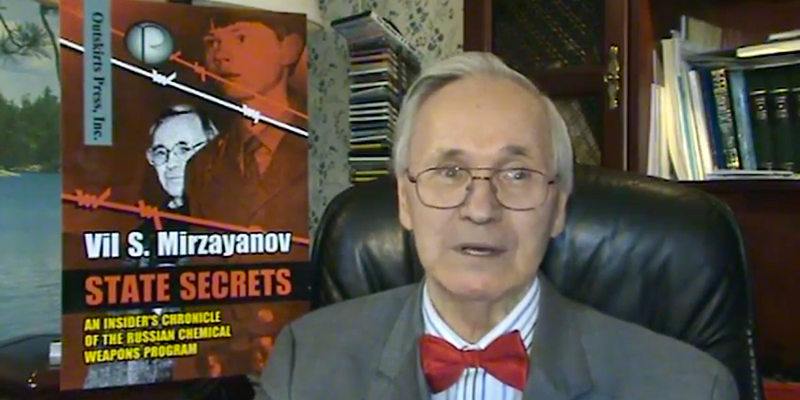
Vil Mirzayanov, a scientist who helped the Soviet Union develop Novichok during the Cold War, has said that anyone - including Britain - could have created its own version of Novichok because he published the chemical formula in his book.
Mirzayanov told Voice of America on Thursday: "The British could easily have synthesized it on the basis of the formulas that I published in my book. [...]
"Each country takes care of its own security, and as part of the study of possible threats, a model could have been created."
Russia's embassy in London also tweeted a link to Mirzayanov's interview.
Pro-Russian outlets, such as the state-backed RT TV network, quickly used Mirzayanov's statement to suggest that other state and non-state actors could have been behind the poisoning.
